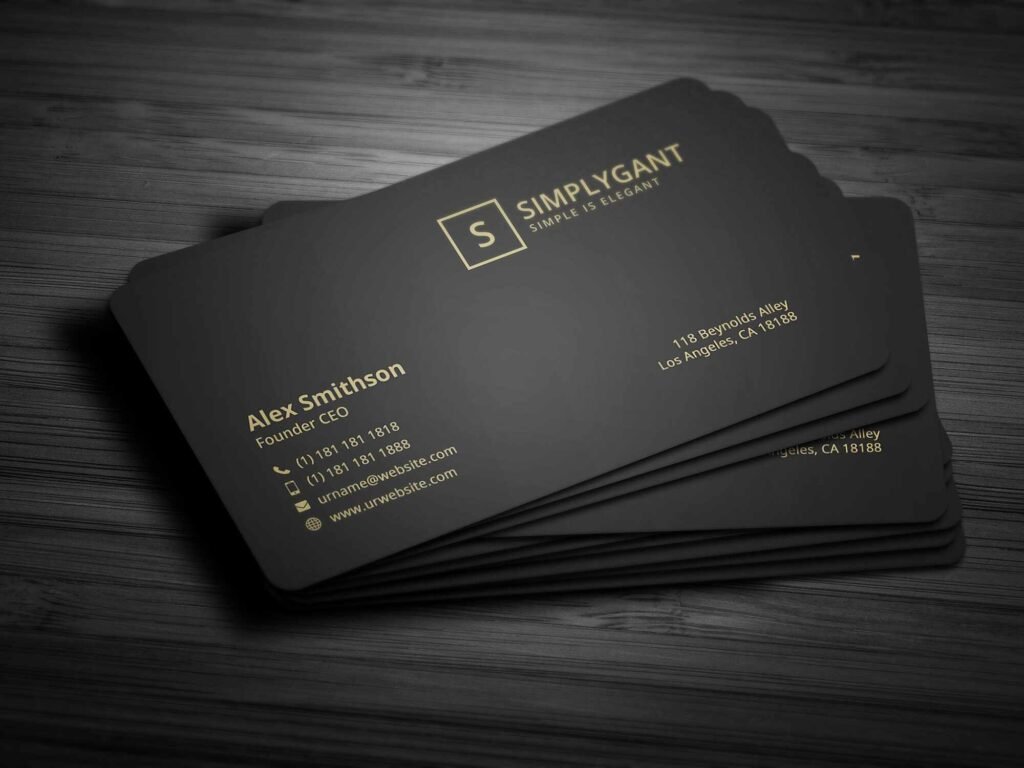WinSavvy Editorial Standards
How this article was created
Finding new tenants for apartments can be challenging. The market is competitive, and renters have many options. To stand out, you need effective marketing strategies that will attract and retain tenants. This guide will walk you through the top marketing strategies for apartments in 2023. We’ll cover everything from online advertising to community events, helping you fill your vacancies quickly and keep your tenants happy.
Understanding Your Target Market
Segmenting Your Audience
Segmenting your audience is crucial for targeting your marketing efforts effectively. Break down your broader market into smaller, more manageable segments based on specific characteristics. These segments can be demographic (age, income, family status), geographic (location), psychographic (lifestyle, values, interests), or behavioral (renting behavior, preferences).
For example, a luxury apartment complex may target high-income professionals and retirees looking for upscale amenities, while a complex near a university may focus on students and young professionals. Tailoring your marketing strategies to each segment can increase engagement and conversion rates.
Creating Detailed Buyer Personas
Creating detailed buyer personas helps you understand the needs, preferences, and pain points of your potential tenants. A buyer persona is a semi-fictional representation of your ideal tenant based on market research and real data about your current tenants. Include details such as age, occupation, income level, lifestyle, and what they look for in an apartment.
For example, one persona might be “Sarah,” a 28-year-old marketing manager who values modern amenities and a short commute to work. Another could be “John and Mary,” a retired couple seeking a quiet community with easy access to healthcare facilities. Use these personas to guide your marketing messages and channel selection, ensuring they resonate with your target audience.
Analyzing Tenant Preferences
Understanding what your target tenants value most in an apartment is key to attracting them. Conduct surveys and focus groups to gather insights into their preferences. Ask questions about preferred amenities, apartment features, community events, and location benefits.
For instance, you might find that young professionals prioritize fitness centers and coworking spaces, while families look for playgrounds and good schools nearby. Use this information to highlight the most attractive features of your property in your marketing campaigns.
Utilizing Data Analytics
Data analytics can provide deep insights into your target market’s behavior and preferences. Use tools like Google Analytics, social media insights, and customer relationship management (CRM) software to track and analyze data. Monitor website traffic, user behavior, and social media engagement to identify patterns and trends.
For example, you might notice that potential tenants from certain geographic areas spend more time on your site or engage more with your social media posts. Use this data to refine your marketing strategies and focus on the most promising segments.
Competitor Analysis
Analyzing your competitors can reveal valuable information about your target market. Identify your main competitors and study their marketing strategies, tenant demographics, and unique selling points. Look at their websites, social media channels, and advertising campaigns. Note what works well for them and where they might be lacking.
For example, if a competitor’s tenants frequently mention the need for better maintenance services, you can emphasize your superior maintenance in your marketing. Competitor analysis helps you position your property more effectively and find opportunities to differentiate your offerings.
Leveraging Technology for Market Research
Advanced technology can enhance your market research efforts. Use online survey tools to gather data from potential and current tenants. Social listening tools can help you monitor conversations about your property and competitors on social media, providing real-time insights into tenant sentiments and preferences.
Geo-targeting technology can identify areas with high demand for rental properties, helping you focus your marketing efforts more effectively. By leveraging technology, you can gather more accurate and timely data to inform your marketing strategies.
Personalized Marketing Strategies
Personalization can significantly improve your marketing effectiveness. Use the data you’ve gathered about your target market to create personalized marketing messages. For example, send personalized emails to different segments with tailored content and offers.
If you know a potential tenant is interested in pet-friendly apartments, highlight your pet amenities and policies in your communication. Personalized marketing makes potential tenants feel valued and understood, increasing their likelihood of choosing your property.
Understanding Economic and Market Trends
Stay informed about broader economic and market trends that can impact your target market. Changes in the job market, interest rates, and housing affordability can influence renting behavior. For instance, a booming local job market might attract more young professionals looking for rental housing.
Conversely, rising interest rates might deter potential buyers from purchasing homes, increasing demand for rentals. Understanding these trends allows you to adjust your marketing strategies to align with current market conditions.
Engaging with Your Community
Engaging with the local community can help you understand your target market better and build strong relationships. Participate in local events, sponsor community activities, and collaborate with local businesses.
These efforts not only increase your property’s visibility but also provide opportunities to interact with potential tenants and gather valuable insights. Building a positive reputation in the community can make your property more attractive to local residents.
Building a Strong Online Presence

Optimize Your Website
Your website is often the first place potential tenants will go to learn about your apartments. Make sure it is user-friendly, visually appealing, and mobile-responsive. Include high-quality photos, virtual tours, and detailed descriptions of your units and amenities.
Ensure that your contact information is easy to find and that there are clear calls to action, such as “Schedule a Tour” or “Apply Now.” A well-optimized website can significantly improve your chances of attracting new tenants.
Utilize SEO Strategies
Search engine optimization (SEO) is essential for making your website visible to potential tenants. Use relevant keywords in your content, such as “apartments for rent in [your city]” and “luxury apartments.”
Create informative blog posts about renting, neighborhood guides, and moving tips to attract more visitors to your site. Ensure your site is technically optimized with fast loading times, secure connections, and a mobile-friendly design. Regularly update your content to keep it fresh and engaging.
Leverage Social Media
Social media platforms like Facebook, Instagram, and LinkedIn are powerful tools for reaching potential tenants. Share engaging content, such as photos of your property, updates on available units, and community events. Use stories and live videos to give virtual tours and showcase your amenities.
Engage with your audience by responding to comments and messages promptly. Run targeted ads to reach specific demographics, such as young professionals or pet owners. Social media can help build a community around your property and attract new tenants.
Engaging Content Marketing
Crafting Compelling Blog Posts
Blogging is a powerful tool for driving traffic to your website and establishing your authority in the rental market. Write blog posts that address the needs and interests of your potential tenants. Topics could include tips for finding the perfect apartment, the benefits of renting vs. buying, neighborhood guides, and decorating ideas for rental spaces.
Use keyword research to identify topics that your target audience is searching for, and incorporate these keywords naturally into your posts to improve your SEO. High-quality, informative blog posts can attract organic traffic, build trust with your audience, and position your property as a desirable place to live.
Creating Interactive Content
Interactive content can significantly boost engagement and keep potential tenants on your website longer. Consider adding features such as quizzes, polls, and calculators. For example, a quiz titled “What’s Your Ideal Apartment Style?” can help potential tenants envision themselves living in your property.
A rent affordability calculator can assist them in understanding their budget and how your apartments fit within it. Interactive content not only engages users but also provides valuable insights into their preferences and needs, allowing you to tailor your follow-up communications more effectively.
Utilizing Video Marketing
Video marketing is a highly effective way to showcase your apartments and engage with potential tenants. Create high-quality videos that highlight your property’s features, such as virtual tours, amenities, and neighborhood highlights. Share resident testimonials to provide social proof and build trust. Videos can be used across multiple platforms, including your website, social media channels, and email marketing campaigns.
Live videos, such as Q&A sessions or behind-the-scenes looks at property maintenance, can create a sense of immediacy and connection with your audience. Videos are engaging and can convey a lot of information quickly, making them an essential part of your content marketing strategy.
Developing a Content Calendar
Consistency is key to a successful content marketing strategy. Develop a content calendar to plan and schedule your blog posts, social media updates, and email newsletters. This ensures that you consistently provide valuable content to your audience and stay top of mind.
Your content calendar should include a mix of content types, such as blog posts, videos, social media updates, and email newsletters. Planning your content in advance allows you to align it with key dates, such as move-in specials, community events, and seasonal promotions, ensuring that your marketing efforts are timely and relevant.
Leveraging User-Generated Content
User-generated content (UGC) can be a powerful addition to your content marketing strategy. Encourage your residents to share their experiences and photos of living in your apartments on social media. Feature this content on your own social media channels and website to provide authentic insights into what it’s like to live in your property.
UGC builds trust and provides social proof, showing potential tenants that others enjoy living in your community. Consider running contests or offering incentives to encourage more residents to share their content.
Optimizing Content for SEO
Optimizing your content for search engines is crucial for driving organic traffic to your website. Conduct keyword research to identify the terms and phrases that potential tenants are searching for. Use these keywords strategically in your blog posts, video descriptions, and social media updates.
Ensure that your content is well-structured, with clear headings and subheadings, and that it includes internal and external links to relevant resources. Regularly update your content to keep it fresh and relevant. SEO-optimized content can help your website rank higher in search engine results, making it easier for potential tenants to find you.
Email Marketing Campaigns
Email marketing is an effective way to nurture leads and keep current tenants informed. Build an email list by offering valuable content, such as a free guide to moving or exclusive access to upcoming rental specials. Send regular newsletters that include updates on available units, community events, and maintenance tips. Personalize your emails based on the recipient’s preferences and behavior.
For example, if someone has shown interest in a specific type of apartment, send them targeted information about similar units. Automated email campaigns, such as welcome emails and follow-ups, can help streamline your communication and ensure that potential tenants receive timely and relevant information.
Hosting Webinars and Virtual Events
Webinars and virtual events can provide valuable information to potential tenants and showcase your property in a unique way. Host webinars on topics such as moving tips, local attractions, and the benefits of renting at your property. Promote these events through your website, social media, and email marketing to attract a wide audience.
During the webinar, engage with participants by answering their questions and providing personalized advice. Virtual events can create a sense of community and give potential tenants a taste of what it’s like to live in your apartments.
Creating Infographics
Infographics are a visually appealing way to present information and engage your audience. Create infographics that highlight the features and benefits of your property, provide moving and renting tips, or showcase local attractions and amenities.
Share these infographics on your website, social media channels, and email newsletters to capture the attention of potential tenants. Infographics are easily shareable, increasing the likelihood that your content will be seen by a broader audience.
Building a Community Blog
A community blog can highlight the unique aspects of your property and the surrounding neighborhood. Feature stories about local businesses, community events, and resident experiences. Invite residents to contribute guest posts about their favorite local spots or tips for living in your apartments.
A community blog can create a sense of belonging and showcase the vibrant community that potential tenants will be joining. Regularly updating the blog with fresh content will keep it relevant and engaging.
Leveraging Paid Advertising
Advanced Pay-Per-Click (PPC) Strategies
PPC advertising, especially through platforms like Google Ads, can be a powerful tool for apartment marketing. To maximize its effectiveness, use advanced targeting options and bid strategies. Start by identifying high-intent keywords such as “luxury apartments near me” or “pet-friendly rentals in [city name].” Use long-tail keywords to attract more specific searches and reduce competition.
Employ negative keywords to filter out irrelevant traffic, ensuring your ads reach the most relevant audience. Utilize geographic targeting to focus your ads on specific neighborhoods or zip codes where potential tenants are likely to be searching. Regularly test different ad copies, headlines, and calls-to-action to see what resonates most with your audience, and use A/B testing to continuously optimize your campaigns.
Dynamic Search Ads
Dynamic Search Ads (DSAs) can help you cover more ground by automatically generating ads based on the content of your website. Google scans your site and matches your ads to relevant searches, ensuring you capture a wider audience without manually creating keywords for every possible query.
This is particularly useful for properties with a large number of units and amenities. Ensure your website is well-optimized and contains detailed descriptions of your apartments, as this will help Google generate more relevant ads.
Remarketing Campaigns
Remarketing campaigns allow you to re-engage visitors who have previously interacted with your website but didn’t convert. Set up remarketing lists to target these users with tailored ads that remind them of your property’s benefits and encourage them to take the next step, such as scheduling a tour or filling out an application.
Use enticing offers or limited-time promotions to create urgency and increase conversion rates. Additionally, segment your remarketing lists based on user behavior, such as pages visited or time spent on your site, to deliver more personalized ads.
Social Media Advertising Strategies
On social media platforms like Facebook and Instagram, leverage advanced targeting options to reach your ideal tenants. Use demographic targeting to specify age, income, education level, and interests that align with your tenant personas. Create custom audiences from your email list or website visitors to retarget users who have already shown interest in your property.
Use lookalike audiences to find new potential tenants who share characteristics with your best current residents. Craft visually appealing ads with high-quality images and videos of your apartments, highlighting unique features and amenities. Utilize carousel ads to showcase multiple units or amenities within a single ad, providing a comprehensive view of what your property offers.

Related: Check out our free tools:

Instagram and Facebook Stories Ads
Stories ads on Instagram and Facebook provide a full-screen, immersive experience that can capture users’ attention effectively. Use this format to give virtual tours, showcase community events, or highlight special promotions.
Keep the content engaging and concise, with a clear call-to-action encouraging viewers to swipe up for more information or to visit your website. Stories ads can be particularly effective for reaching a younger demographic who frequently use these features on social media.
LinkedIn Advertising
LinkedIn can be a valuable platform for marketing high-end apartments to professionals. Use LinkedIn ads to target users based on their job title, industry, company size, and more. Highlight features that appeal to professionals, such as proximity to business districts, coworking spaces, and luxury amenities.
Sponsored content, InMail campaigns, and text ads can all be effective ways to reach this audience. Emphasize how your apartments offer a convenient and upscale living experience that suits their busy lifestyles.
Geo-Fencing and Location-Based Advertising
Geo-fencing allows you to target users within a specific geographic area with tailored ads. This is particularly useful for reaching potential tenants who are nearby and might be interested in visiting your property. Set up geo-fences around key locations such as universities, business districts, and shopping centers.
When users enter these areas, they receive targeted ads on their mobile devices promoting your apartments. Highlight nearby amenities and special offers to encourage immediate action. Location-based advertising can drive foot traffic to your leasing office and increase local awareness of your property.
Programmatic Advertising
Programmatic advertising automates the buying of ad space to target specific audiences in real-time. Use programmatic platforms to reach potential tenants across various websites and apps they visit. Programmatic ads can include display ads, video ads, and native ads, all tailored to your target audience’s online behavior and preferences.
By leveraging data and machine learning, programmatic advertising can optimize your ad spend and increase the efficiency of your campaigns. Ensure your creatives are compelling and tailored to the different formats and platforms where your ads will appear.
Leveraging Video Ads
Video ads are highly engaging and can effectively showcase your property’s features and amenities. Create short, impactful video ads that highlight key selling points such as spacious floor plans, modern kitchens, and community amenities.
Use platforms like YouTube, Facebook, and Instagram to distribute your video ads. Include a strong call-to-action, encouraging viewers to visit your website, schedule a tour, or contact your leasing office. Video ads can create a more immersive experience and leave a lasting impression on potential tenants.
Measuring and Analyzing Performance
Regularly monitor the performance of your paid advertising campaigns to ensure they are meeting your objectives. Use analytics tools provided by ad platforms to track key metrics such as click-through rates, conversion rates, and cost per acquisition. Set up tracking pixels on your website to measure the effectiveness of your ads in driving actions such as form submissions and tour bookings.
Analyze the data to identify which campaigns and ad creatives are performing best and make data-driven decisions to optimize your strategy. Continuously testing and refining your ads will help you achieve better results and maximize your return on investment.
Enhancing Tenant Experience
Personalized Welcome Packages
Creating a memorable first impression is crucial for tenant retention. Provide personalized welcome packages for new tenants that include essentials such as toiletries, snacks, local area guides, and small branded gifts like keychains or reusable shopping bags.
Adding a handwritten welcome note can make the package even more special. This thoughtful gesture can help new tenants feel valued and appreciated right from the start, fostering a positive relationship with your property.
Seamless Move-In Experience
Streamline the move-in process to make it as hassle-free as possible. Provide clear, detailed instructions about move-in day procedures, including parking information, elevator usage, and contact details for any questions or issues.
Offer assistance such as a move-in coordinator who can help with logistics and answer any last-minute questions. Consider providing a move-in checklist and a digital guide that tenants can access through a mobile app, ensuring they have all the necessary information at their fingertips.
Community Building Events
Organizing regular community events can enhance the tenant experience and create a sense of belonging. Host a variety of events, such as holiday parties, movie nights, fitness classes, and cooking workshops, to cater to different interests.
These events provide opportunities for tenants to socialize, build relationships, and feel more connected to the community. Promote these events through email newsletters, social media, and flyers in common areas to ensure high participation.
Enhanced Communication Channels
Effective communication is key to tenant satisfaction. Offer multiple channels for tenants to communicate with management, including email, phone, a dedicated mobile app, and social media. Ensure that all inquiries and maintenance requests are responded to promptly and professionally.
Implement a tenant portal where residents can submit requests, pay rent, and access important documents. Regularly solicit feedback through surveys to identify areas for improvement and demonstrate that you value tenant input.
Maintenance and Upkeep
Maintaining a high standard of property upkeep is essential for tenant satisfaction. Implement a proactive maintenance schedule to address potential issues before they become problems. Offer a quick response time for maintenance requests and provide regular updates to tenants about the status of their requests.
Consider offering 24/7 emergency maintenance services to handle urgent issues. Keeping common areas clean and well-maintained also contributes to a positive living environment.
Flexible Lease Options
Offering flexible lease options can attract and retain tenants with varying needs. Provide short-term leases for those who may need temporary housing, as well as longer-term leases for those looking for stability. Consider offering month-to-month options for added flexibility. Flexible lease terms can accommodate a wider range of tenants and increase your occupancy rates.
Modern Amenities and Services
Modern amenities can significantly enhance the tenant experience. Ensure your property offers desirable features such as a fitness center, swimming pool, coworking spaces, and high-speed internet.
Consider implementing smart home technology, such as keyless entry, smart thermostats, and security systems, to provide added convenience and security. Offering additional services, such as package delivery lockers, laundry facilities, and pet care services, can further improve tenant satisfaction.
Sustainable Living Options
Sustainability is becoming increasingly important to tenants. Implement eco-friendly practices such as energy-efficient appliances, solar panels, recycling programs, and water-saving fixtures. Create green spaces, such as community gardens or rooftop terraces, where tenants can relax and enjoy nature.
Highlight these sustainable features in your marketing materials to attract environmentally conscious tenants. Promoting a green living environment not only benefits the planet but also enhances your property’s appeal.
Reward and Loyalty Programs
Implementing a rewards program can incentivize tenants to stay longer and refer new tenants. Offer rewards for actions such as renewing leases, referring friends, or participating in community events.
Rewards can include rent discounts, gift cards, or access to premium amenities. A loyalty program can enhance tenant satisfaction and foster a sense of community, leading to higher retention rates.
Providing Educational Resources
Offer educational resources and workshops that provide value to your tenants. Topics could include financial planning, home organization, wellness and fitness, and local history.
These resources can help tenants improve their quality of life and feel more connected to the community. Providing ongoing education and enrichment opportunities demonstrates your commitment to tenant well-being and can set your property apart from competitors.
Ensuring Safety and Security
Safety is a top priority for tenants. Implement comprehensive security measures such as surveillance cameras, secure entry systems, well-lit common areas, and regular security patrols. Provide clear information about safety protocols and emergency procedures.
Hosting safety workshops or providing safety tips in newsletters can also help tenants feel more secure. A safe living environment is crucial for tenant peace of mind and satisfaction.
Regular Feedback and Improvements

Regularly seeking and acting on tenant feedback can lead to continuous improvements in the tenant experience. Conduct periodic surveys to gather insights on tenant satisfaction and areas for improvement.
Hold town hall meetings or focus groups to discuss concerns and suggestions directly with tenants. Use this feedback to make informed decisions about property improvements and policy changes. Demonstrating that you listen to and act on tenant feedback can build trust and loyalty.
Digital Solutions for Convenience
Incorporate digital solutions to make living at your property more convenient. Offer online rent payment options, digital lease signing, and virtual tours. Implement a mobile app where tenants can manage their accounts, submit maintenance requests, and stay updated on community news. Providing digital solutions enhances the tenant experience by offering convenience and accessibility.
Conclusion
Marketing your apartment complex effectively in 2023 requires a comprehensive strategy that combines understanding your target market, engaging content marketing, leveraging paid advertising, and enhancing tenant experience. Each of these elements plays a crucial role in attracting new tenants and retaining current ones.
Understanding your target market involves detailed market research, segmenting your audience, creating buyer personas, and continuously analyzing tenant preferences and behavior. This allows you to tailor your marketing efforts to meet the specific needs and desires of your ideal tenants.
Read Next:





















Comments are closed.